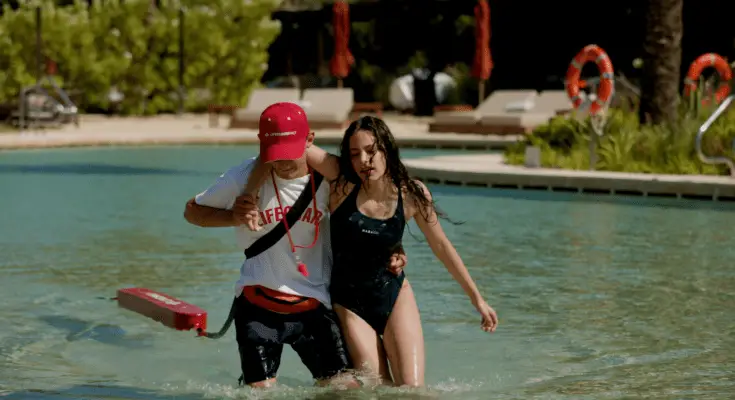A lifeguard’s job is undeniably more than mere observation by the water’s edge. It envelops a scope of basic duties essential for safeguarding the lives of swimmers and beach fans.
We should dive into the heap of responsibilities lifeguards shoulder to maintain a solid aquatic environment. We will also discuss the skills of lifeguard that help them to perform their duties well. We will talk about:
- Their vigilance
- Education
- Prevention of accident and potential hazards
- Crowd control
- Equipment maintenance
And many other important things
Vigilance and Surveillance: The Watchful Eye
At the core of lifeguarding lies the responsibility of remaining vigilant and maintaining unwavering surveillance over the designated region. This involves standard outputs of the water, meticulously searching for any indications of pain or likely dangers. Lifeguards should have sharp observation skills to swiftly identify swimmers deprived of help and make an immediate move to aid them.
Prevention and Education: Promoting Safety Culture
Lifeguards serve a crucial role in accident prevention through the education of patrons on water safety protocols and regulations. They lead safety briefings, uphold pool rules, and educate swimmers on the significance of adhering to guidelines for a protected swimming encounter. This educational undertaking is instrumental in fostering a culture of safety and awareness among pool and beach visitors.
Rescue Operations: Swift and Proficient Response
When a swimmer experiences inconvenience or requires aid, lifeguards spring into action. They are proficiently trained in different rescue techniques, including reaching help, toss rescues, and in-water rescues. Their quick response can significantly affect the outcome, frequently making the difference between life and death. Lifeguards are likewise capable swimmers, fit for navigating the water swiftly and actually during rescue operations.
First Aid and Emergency Response: Immediate Assistance
Lifeguards undergo thorough training in first aid and CPR, enabling them to give immediate medical help in instances of injuries or emergencies. As frontline responders in aquatic settings, they should be ready to deal with diverse medical situations, from treating minor injuries to stabilizing patients and coordinating with emergency medical services when fundamental.
Crowd Control: Ensuring Request and Safety
In bustling pool or beach settings, lifeguards likewise shoulder the responsibility of group control. This involves ensuring that the region isn’t stuffed, maintaining adequate space for safe swimming, and enforcing limit limits. Viable group control measures are crucial for preventing accidents and maintaining requests, particularly during busy times or extraordinary events.
Communication and Collaboration: Coordinated Efforts
Viable communication is central for lifeguards to coordinate seamlessly with one another and other emergency responders. Clear and brief information trade, facilitated through hand transmissions, whistles, and radios, is crucial, especially during basic situations or in uproarious environments.
Equipment Maintenance: Dependability in Tools
Lifeguards are dependent on the normal maintenance and inspection of rescue equipment, including life floats, rescue cylinders, and first aid units. Ensuring that equipment is in ideal working condition is essential for swift and successful rescue operations. Lifeguards get training on appropriate equipment usage to expand their adequacy during emergencies.
Environmental Awareness: Understanding Risks
Lifeguards should maintain awareness of environmental factors that can affect safety, like weather conditions, water flows, and potential risks like marine life or submerged deterrents. This elevated awareness permits lifeguards to anticipate risks and proactively mitigate them through changed surveillance and response strategies.
Continuous Training and Certification: Upholding Competence
To satisfy their responsibilities actually, lifeguards undergo thorough training and certification programs. Lifeguard training underlines water rescue techniques, first aid, CPR, and other essential skills. Lifeguards engage in standard lifeguard certificate near them to keep up to date with the latest safety protocols and techniques, ensuring ongoing capability and readiness to respond to emergencies.
Community Engagement: Promoting Safety Awareness
Past their working liabilities, lifeguards actively take part in community engagement endeavors to promote water safety mindfulness. These drives include outreach programs, school visits, and community occasions zeroed in on teaching people about drowning prevention and safe swimming practices.
By drawing in with the community, lifeguards encourage a feeling of association and highlight the importance of water safety inside the local region.
The Role of the American Lifeguard Association: Setting Standards
The American Lifeguard Association (ALA) plays a critical part in laying out industry benchmarks, giving lifeguard certification, and advocating for best practices in aquatic safety. Lifeguards who get training and certification through the ALA go through thorough lifeguard training, guaranteeing they are well-ready to actually satisfy their obligations.
Besides, the ALA gives resources, continuous education prospects, and networking roads to help lifeguards in their main goal of maintaining aquatic safety standards.
In conclusion, lifeguards bear a significant responsibility that stretches out a long way past mere management. They are endowed with the safety and well-being of swimmers and beachgoers, entrusted with preventing accidents, responding to emergencies, and fostering a culture of water safety.
Through their dedication, skills, and continuous training, lifeguards act as invaluable resources in ensuring a solid and pleasant aquatic experience for all.



